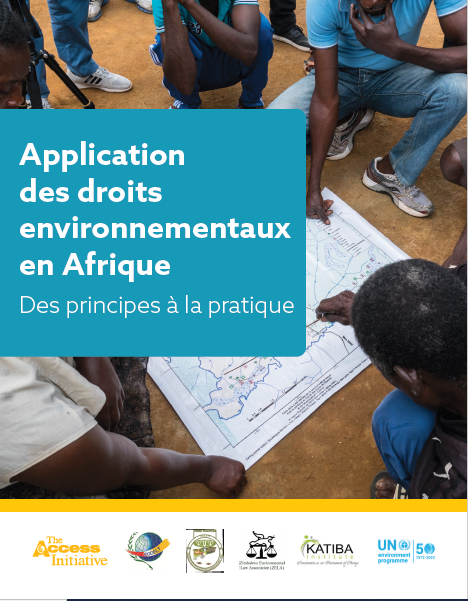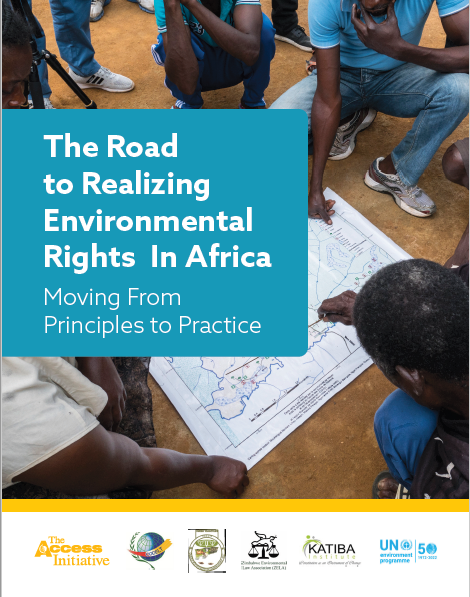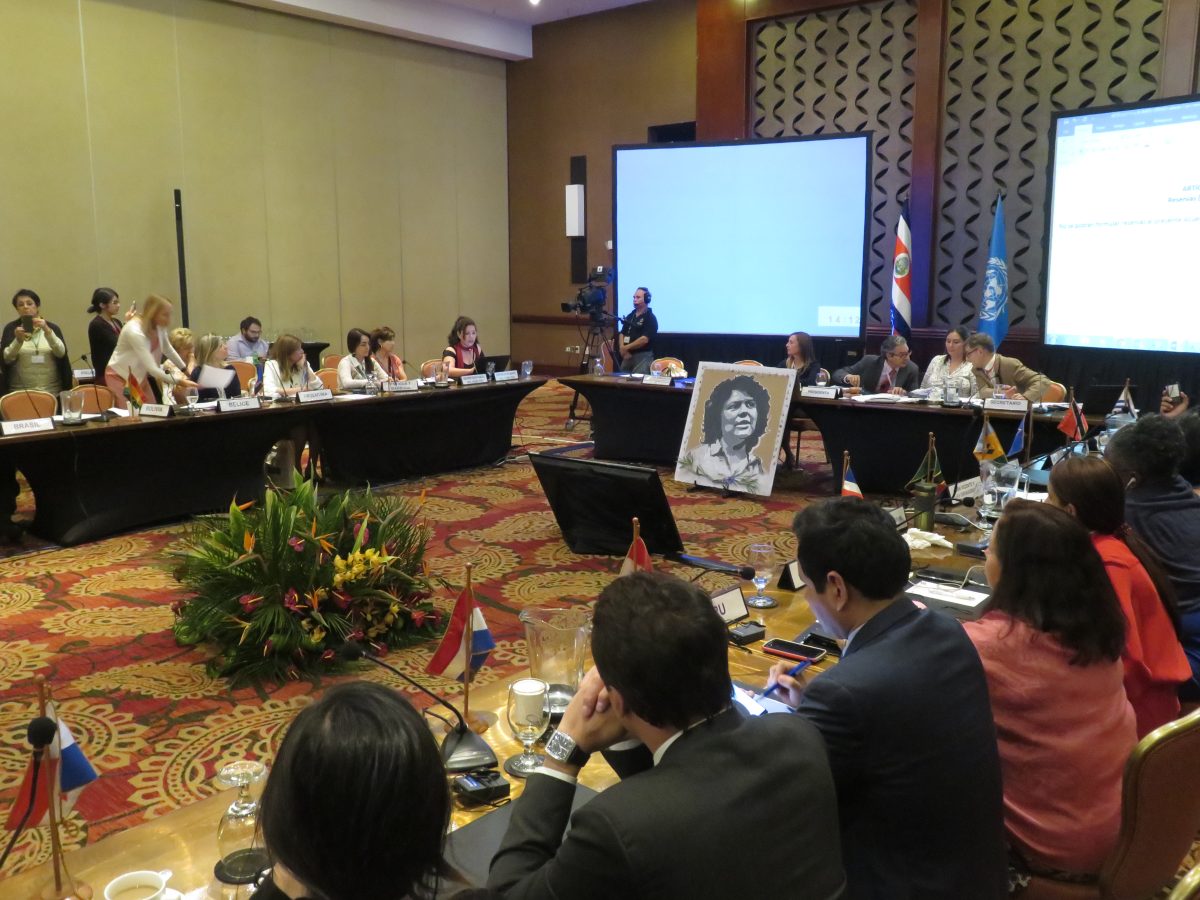The Escazú Convention: an Agreement with a Women’s Spirit to Defend Land, Rivers and our Resources
On March 3, 2018, two years after the murder of Berta Caceres in Honduras, States of the Latin America and the Caribbean (LAC) region, gather in Escazú, Costa Rica, for the 9th Meeting of the Negotiation Committee for Principle 10, where 24 States of the Region reached a consensus to approve an Agreement on Principle 10; Access to information, participation and justice in environmental matters, after the consensus was reached, a tribute was organized by the representatives of the public in order to remember the struggle of Berta Cáceres that cost her life, hoping that this agreement will carry on with her legacy.
The Escazú Convention on Principle 10 is the First Multilateral Environmental Agreement for the LAC region, where two dozens of States of the region participated. Its importance lies in its binding nature and in the fact that it does not admit reservations to it, which gives it a practically obligatory character. The Agreement has the aimed to guarantee access rights for all the population without discrimination, access to environmental information, access to public participation in decision-making and access to justice and remediation within the framework of environmental matters.
Principle 10 was adopted 1992 as a part of the Rio Declaration, states that:
“Environmental issues are best handled with participation of all concerned citizens, at the relevant level. At the national level, each individual shall have appropriate access to information concerning the environment that is held by public authorities, including information on hazardous materials and activities in their communities, and the opportunity to participate in decision-making processes. States shall facilitate and encourage public awareness and participation by making information widely available. Effective access to judicial and administrative proceedings, including redress and remedy, shall be provided.
Furthermore, it includes two issues that are crucial in the regional context: vulnerable groups and environmental defenders, both terms included in the Agreement, are very relevant to a region where there is a huge threat of death for environmental defenders with alarming figures; according to the NGO Global Witness in 2016 the lives of at least 120 environmental defenders were taken, where the countries with the most murders are Brazil and Colombia, between a varied range of struggles from local to regional.
We hope that this Agreement will help to drastically reduce the killings of environmental defenders in the region through the commitments assumed by States to recognize the work of defenders and assume their protection while guaranteeing their human rights. The agreement is intended to be a key tool for environmental activists so that they can access environmental information to assess the situation and how the population is being affected by the negative impacts of certain activities, especially megaprojects many times linked with extractive industries, carrying the spirit of those who have gave their lives to protect land, water and other resources, like Berta.
The agreement also recognizes people or groups in vulnerable situations who have also to be taken into account when talking about long-term environmental sustainability, for which it is necessary to identify these groups at the local level, because there is no homogeneity among the most vulnerable populations it is very important that these are identified by the communities themselves in order to share the impacts on their lives that sometime may result on whole communities disappearing especially migrating to nearby cities generating more poverty and alienating their cultural heritage.
In the same way, the treaty guarantees the participation of the public, civil society and all the actors involved in the different processes related to the environmental issue, as well as ensuring the participation of these groups in the decision-making process. But perhaps the most relevant is the commitment to provide environmental justice to the population of the region, especially those populations that have suffered damages due to a series of unregulated activities that have drastically damaged.
Another great achievement of this Convention is that it includes the creation of the COPs (Conference of the Parties) where a large part of the implementation will be monitored and in the same way the spaces of the COP will serve to develop new and innovative ways to enforce the agreement, therefore the tools that ensure the implementation of this agreement will be defined during COPS, like other COPs of environmental issues; it will also develop new tools that allow compliance with it and may create subsidiary bodies in order to contemplate specific situations.
The issues related to environment and natural resources are key for the LAC region, finding points of convergence among the 24 countries that participated in the negotiations was very difficult due to different contexts, however there is a clear vision to move forward to guarantee access rights for the population. The main difficulty lies in the political will of the Parties (States) of the Agreement to elaborate or adapt regulatory frameworks that allow the full implementation of the Agreement, responding to national contexts and regional conjunctures.
Finally the Escazú Convention was adopted on March 4, 2018 under the under the wing of ECLAC, whom have shown a strong commitment to Principle 10 long before the negotiations began, as the Technical Secretariat has been concerned to coordinate and provide the States with the necessary information to reach the approval of this Agreement. The great challenge now is for the Parties (States) to sign and ratify the Agreement so that it enters into force and we believe that ECLAC will be the key to concretize the commitments of the Parties.
Declaration in honor of environmental defenders
Commemorating the two years of the death of Berta Cáceres
Ninth Meeting of the Negotiating Committee – Principle 10
Escazú, Costa Rica, March 3, 2018
Thank you very much Mr. Chair, honorable delegates, representatives of the public and dear colleagues.
Today, two years ago, less than a thousand km from where we stand, in Esperanza, Honduras, a life was taken, a life of struggle and dreams, a life whose only crime was to fight for indigenous rights and nature, a life that to date has not seen justice, a life that became thousands of lives, Berta Cáceres lives and she became millions.
In these cold rooms, we forget that our continent is a continent of water and coasts, of mountains and forests, a continent that every day fights for democracy, a continent where inequality manifests itself in scenic images of poverty mixed with exuberant landscapes of natural wealth, a continent rich in resources but poor in quality of life, a continent that quickly depletes its resources in the name of development.
This panorama invites us to continue the struggle of hundreds of environmental defenders who have given their lives for the rights and defense of nature in the region, committed to the species and spirits that inhabit each ecosystem, fighting corruption and ignorance, trying to guarantee a decent future for the population, especially for those forgotten communities that maintain a collective memory of pre-colonial times and that are threatened by a ferocious extractivism that does not allow regeneration or recovery, putting at risk the sustainability at a long term of a lot that we know today and we take for granted such as the white glaciers of the Andes, the green Amazonian jungles, the beautiful jaguars or the veins that unite us in the form of rivers, like river Beni o el river Gualcarque along our territories.
Today, World Wildlife Day, as we celebrate the life of Berta, we are here recognizing our historic responsibility to achieve an Agreement that guarantees us access rights to information, participation and environmental justice for all the inhabitants of Latin America and the Caribbean without discrimination. Today we celebrate that this Agreement becomes a tool through the recognition of environmental defenders so that tomorrow many of us, committed activists, will not be criminalized or discredited and our rights guaranteed.
We highlight the efforts that the delegations have put into this Agreement especially to recognize people or groups in vulnerable situation and ensure that women, young people, indigenous peoples, especially those fighting against extractivism, against mega dams, against illegal trafficking of species and genetic resources among other struggles, so they can access the mechanisms that guarantee an effective participation in the decision-making about their territories and their natural resources that ultimately leads them to develop communities of life in a dignified way, if that is achieved, future generations and not only of humans, will thank you, otherwise we will perpetuate the destruction and the enslavement that are leading us to poverty and extinction.
Now I invite you to offer a minute of silence for Berta and all the activists in Latin America and the Caribbean whose lives were taken.
Viva Berta!
Thank you very much!
(delivered by Carmen Capriles)
Download the Agreement on the Escazú Convention on Principle 10
http://www.accessinitiative.org/sites/default/files/regional_agreement_on_access_to_information_-_costa_rica.pdf
Other interesting articles:
We have a binding Principle 10!
http://www.dar.org.pe/en/eiti/p10costarica2/
Escazú Convention 2018: A Landmark for the LAC Region
https://www.linkedin.com/pulse/escazu-convention-2018-landmark-lac-region-lalanath-de-silva/?published=t
Latin America seeks to protect environmental activists
http://www.dw.com/en/latin-america-seeks-to-protect-environmental-activists/a-42878012
Latin America: Principle 10 breakthrough for environmental democracy
https://www.article19.org/resources/latin-america-principle-10-breakthrough-environmental-democracy/
Two dozen Latin American countries sign agreement to protect environmental defenders
https://news.mongabay.com/2018/03/two-dozen-latin-american-countries-sign-agreement-to-protect-environmental-defenders/
Latin America and the Caribbean Adopts Its First Binding Regional Agreement to Protect Rights of Access in Environmental Matters
https://negociacionp10.cepal.org/9/en/news/latin-america-and-caribbean-adopts-its-first-binding-regional-agreement-protect-rights-access



